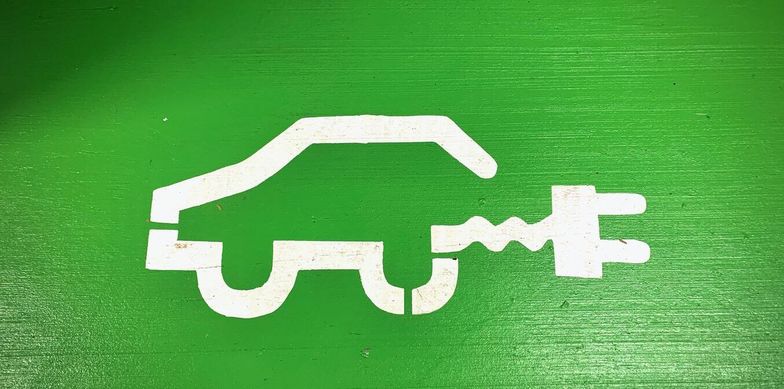This is where company benefits come into play that also includes the possibility of providing the employee with remuneration using various benefits under payroll tax and social security contribution law. An initial overview, which cannot be conclusive regarding the necessary case-by-case examination, can be found here.
 © unsplash
© unsplashHealth Promotion
Benefits offered or subsidized by the employer for workplace health promotion and behavioral prevention, such as yoga classes or gymnastics during breaks, are exempt from tax and social security contributions up to an annual amount of EUR 600. The benefits must meet specifically defined criteria and be certified. Moreover, they must be granted in addition to the salary that is owed anyway.
Note: Benefits predominantly in the employer's own interest, such as protective vaccinations or "health-related" work equipment, do not result in wages.
Travel Allowances
If the employer subsidizes the employee's travel by public transport (excluding air transport) between home and the first place of work as well as travel by local public transport (including private travel), these benefits are exempt from tax and social security contributions, provided that the subsidy is granted in addition to the salary that is owed anyway. The tax exemption applies both to subsidies and to the discounted or free provision of tickets (e.g. job tickets, railcards). However, the tax-free benefit is offset against the commuting allowance.
Note: If the tickets meet the requirements for tax exemption, the non-monetary remuneration exemption limit of currently EUR 50 per month does not apply. This means that the non-monetary remuneration exemption limit can be used for other non-monetary benefits to employees.
Instead of tax exemption, the employer could also tax travel allowances at a flat rate under certain conditions.
Company Bicycles
If the employer provides the employee with a company bicycle for use free of charge or at a reduced price, the resulting non-cash benefit for the employee is exempt from tax and social security contributions, provided the benefit is granted in addition to the salary that is owed anyway. Only bicycles that are not to be regarded as motor vehicles (e.g. pedelecs up to 25 km/h, not S-pedelecs) fall under the tax exemption.
Note: If the criterion of additionality is not met and rather a salary conversion is made, the use of the company bicycle does not fall under the tax exemption. In this case, the non-cash benefit must be determined using the 1% rule. In the case of a transfer after December 31, 2018, only a quarter of the gross list price is to be used as the basis for assessment since 2020.
If a company bicycle is transferred to the employee free of charge or at a reduced price by the employer, the benefit can be taxed at a flat rate by the employer if it is additionally granted.
Benefits in Kind
If the employer provides the employee benefits in kind, such as flowers or a book on the occasion of a special personal event (e.g. wedding, anniversary) of up to EUR 60 (gross), this benefit does not constitute remuneration for the employee. Drinks and luxury foods (fruit, cookies) consumed at the workplace are also not included in wages. Meals up to EUR 60 (gross) due to an extraordinary work assignment also do not count as wages.
Note: Since attentions do not constitute wages, so that they are not to be included under the non-monetary remuneration exemption limit.
Internet Fees
If the employer pays subsidies towards the employee's costs for Internet use (running costs and costs for setting up Internet access), the employer can pay a flat rate of 25% tax on the resulting income for the employee, assuming that the subsidies are granted in addition to the income owed anyway. The tax authorities consider a monthly amount of up to EUR 50 to be eligible for lump-sum taxation without further examination.
Note: The assumption of costs and the lump-sum compensation for the use of the private connection may be of particular interest to employees working in a home office.
Meal Vouchers
If the employer grants its employees meal vouchers and if the settlement value of the meal voucher does not exceed the official non-cash remuneration value by more than EUR 3.10, the meal voucher is to be valued at the non-cash remuneration value. Thus, up to EUR 3.10 per working day are tax-exempt. Further requirements are that the meal vouchers are actually used to purchase meals, that only one meal voucher per meal is paid for each day, and that the meal voucher is not issued to employees for days on which an external activity is carried out. The taxable non-cash benefit value of EUR 3.57 in 2022 can be taxed at a flat rate by the employer, so that as a result meal vouchers up to a value of EUR 6.67 per working day will be tax- and social security-free for the employee from 2022.
Note: Provided that an employee does not receive more than 15 meal vouchers per month and does not perform away-from-home activities on an annual average of more than three working days per month, there is no obligation to record his or her days of absence. Meal vouchers may also be granted for home office activity days, provided employees purchase meals.
Vouchers and Cash Cards
If, in addition to the salary owed anyway, the employee is granted non-cash benefits in kind by the employer that fall under the monthly benefit in kind exemption limit of EUR 50 (EUR 44 until 2021), these are exempt from tax and social security contributions. Vouchers or cash cards granted by the employer to the employee are recognized as remuneration in kind in this sense if they entitle the employee exclusively to purchase goods or services from the voucher issuer from its own product range (closed-loop cards, e.g. reloadable gift cards for the retail trade, cinema vouchers) or to purchase goods or services not only from the voucher issuer but also from a limited group of acceptance points (controlled-loop cards, e.g. center vouchers, city cards, Sodexo Benefit Pass). In order for closed-loop and controlled-loop cards to be recognized as remuneration in kind, they must also (since 01.01.2022) meet the criteria standardized in the Payment Services Supervision Act. If this is the case, the cards can be granted tax-free if the aforementioned monthly EUR-50-threshold is not exceeded including further non-monetary remuneration.
Note: In contrast, so-called open-loop cards (e.g. prepaid cards with PayPal credit, Visa and MasterCard) are treated as cash benefits and thus do not fall under the non-cash benefit exemption limit.
Charging of Electric Vehicles
If an employee charges his or her private or business electric or hybrid electric vehicle at a charging device on the employer's premises, the non-cash benefit accruing to the employee is exempt from tax and social security contributions if he or she receives this in addition to the salary that is owed anyway. The free or reduced-price transfer (rental, loan) of a company charging device to the employee for private use is also tax-free. However, this does not apply to the electricity drawn from the company charging device, whereby it is irrelevant whether the electricity connection is in the employer's name or whether the employer makes contributions to the employee's electricity costs.
Note: Electric bicycles over 25 km/h (e.g. S-pedelecs) are also covered by the tax exemption.
If the company charging device is transferred to the employee free of charge or at a reduced price, lump-sum taxation of the resulting benefit comes into consideration if it was additionally granted.
Allowance for Charging Electric Vehicles
If the employer provides an employee with an electric or hybrid electric vehicle as a company car - also for private use - the reimbursement by the employer of the electricity costs borne by the employee himself is to be treated as an expense allowance exempt from tax and social security contributions.. To simplify the reimbursement of expenses, monthly lump sums exist for the period from January 1, 2021 to December 31, 2030, which can be reimbursed tax-free. The amount of the flat rate depends on whether the employee has an additional charging facility available at the employer's premises. With an additional charging option, the flat rate for electric vehicles is EUR 30 per month and EUR 15 per month for hybrid electric vehicles. Without an additional charging option, the flat rate for electric vehicles is EUR 70 and for hybrid electric vehicles EUR 35 per month. Alternatively, the actual costs proven by receipts can also be reimbursed as a tax-free reimbursement of expenses.
Note: Electricity charging cards are treated in the same way as an additional charging facility at the employer's premises.
Company IT Equipment
If an employer provides an employee with data processing and telecommunications equipment including accessories (e.g. laptop, smartphone), the non-cash benefit arising from the private use is tax- and social security-free.. The same also applies to the private use of company system and application programs (e.g. Microsoft Office packages) as well as services provided in connection with the aforementioned benefits (maintenance, installation, support).
Note: The tax exemption also applies if the private use predominates (e.g. provision of an Applewatch or an iPad). The decisive factor is that the devices are owned by the company. Furthermore, the tax exemption can also be used if the benefit is not granted in addition to the salary that is owed anyway.
Furthermore, a flat-rate tax of 25% is permitted if the employer transfers data processing equipment to its employees free of charge or at a reduced price in addition to the wages owed anyway.
Childcare Costs
If an employer reimburses an employee for extraordinary care services for relatives in need of care or children up to the age of 14 due to the Corona pandemic, these are exempt from tax and social security contributions up to an amount of EUR 600. The prerequisite is that due to the pandemic and its associated closures the employee is working outside normal working hours or regular care is not possible. It is also necessary that the payment is additional to the wages owed anyway.
Note: The allowance only applies to short-term care. According to the tax authorities, short-term care ends as soon as the respective care facilities can resume their regular operations.





